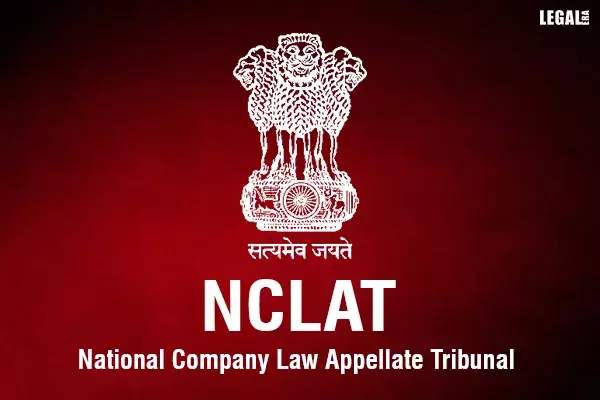NCLAT Rules: Section 7 Must Be Decided First If Section 54C Application Is Filed After 14 Days
The NCLAT New Delhi bench, comprising Justice Ashok Bhushan (Judicial Member) and Mr. Barun Mitra (Technical Member),;

NCLAT Rules: Section 7 Must Be Decided First If Section 54C Application Is Filed After 14 Days
The NCLAT New Delhi bench, comprising Justice Ashok Bhushan (Judicial Member) and Mr. Barun Mitra (Technical Member), has ruled that when an application under Section 54C of the Insolvency and Bankruptcy Code (IBC) is filed more than 14 days after an application under Section 7 of the IBC, the application under Section 7 must be decided first, as per Section 11A(3) of the Code.
The corporate debtor (CD) defaulted on loan repayments, leading to its account being classified as a non-performing asset (NPA) in 2017 by a consortium of banks, including SBI, IDBI Bank, and Bank of Baroda. While SBI and IDBI agreed to a One-Time Settlement (OTS) proposal, Bank of Baroda rejected it and filed an application under Section 7 of the IBC. Subsequently, the CD filed an application under Section 54C, after obtaining approval from 79.12% of its financial creditors. Bank of Baroda objected to the maintainability of the application.
The application under Section 54C was admitted, and the application under Section 7 was disposed of simultaneously. This led to appeals being filed against the decision.
The appellant argued that since the CD filed the application under Section 54C more than 14 days after the Section 7 application, the latter should have been decided first. The appellant also contended that the Resolution Plan violated Section 30(2) of the Code by treating assenting and dissenting creditors equally and questioned the CD’s eligibility to file under Section 54C without an MSME certificate.
On the other hand, the respondents argued that Bank of Baroda filed its Section 7 application prematurely and that the period required for statutory compliance should be excluded while calculating the 14-day window for filing Section 54C. They further contended that the Base Resolution Plan, approved by the majority of creditors, should bind all parties, including Bank of Baroda.
The NCLAT first addressed whether the CD was eligible to file under Section 54C based on its MSME registration. The tribunal referred to a previous ruling and confirmed that the CD had a valid MSME certificate, thus making it eligible to file the application.
The bench also emphasized that when a statute mandates specific consequences for non-compliance, such provisions must be considered mandatory. In this case, Section 11A(3) clearly requires that if an application under Section 54C is filed after 14 days from the Section 7 application, the Section 7 application must be disposed of first. The tribunal rejected the appellant's argument that the period for statutory compliance should be excluded from the 14-day calculation.
Regarding the second issue, the bench held that the Adjudicating Authority was bound to dispose of the Section 7 application before considering the Section 54C application. However, since the Resolution Plan had already been approved and payments had been made to all financial creditors, including Bank of Baroda, the tribunal found that setting aside the order and reconsidering the Section 7 application would serve no useful purpose.
Lastly, the tribunal ruled that the appellant was entitled to receive payment under the Resolution Plan as per Section 30(2)(b) and Section 53(1)(b), and directed that any differential amount be paid to the appellant within 30 days.
The NCLAT upheld the resolution plan, affirming that the Section 7 application must be decided before the Section 54C application, as per the mandate of Section 11A(3). The tribunal also directed the payment of any differential amount owed to the appellant as per the Resolution Plan.

